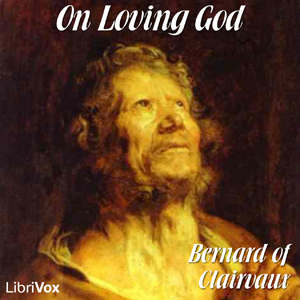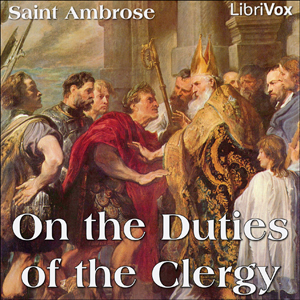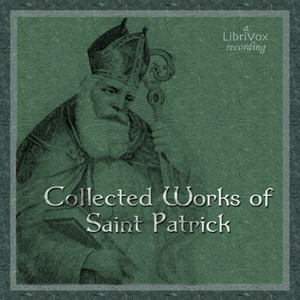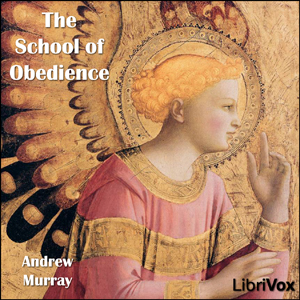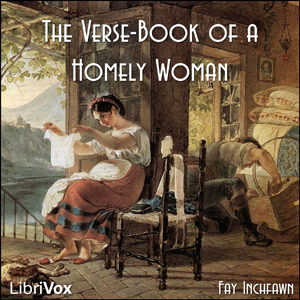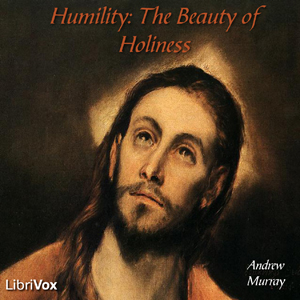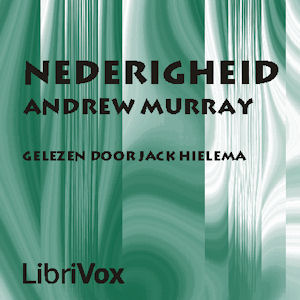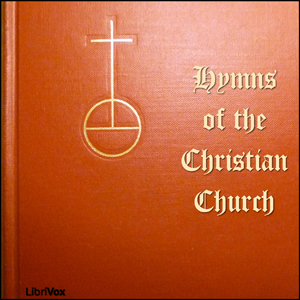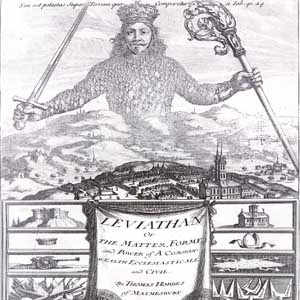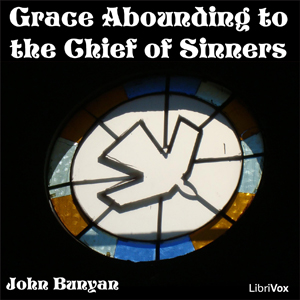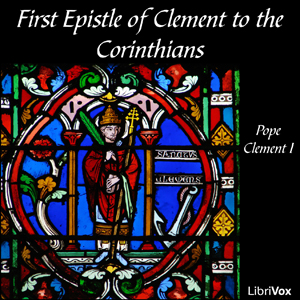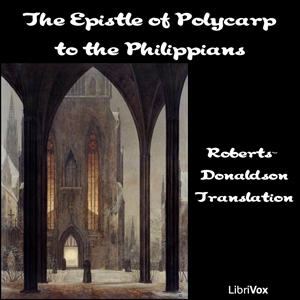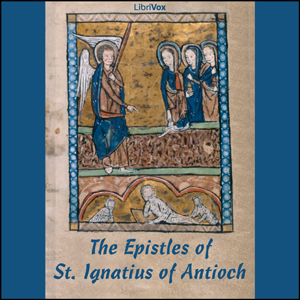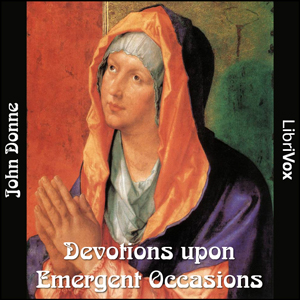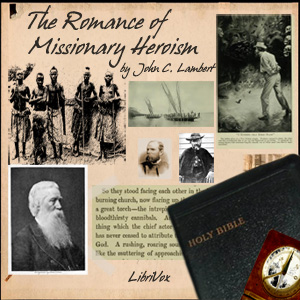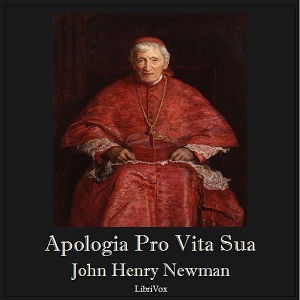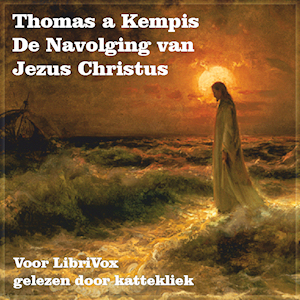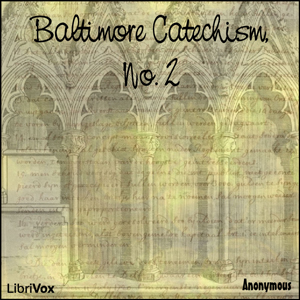Translated into over 100 languages, The Pilgrim's Progress is one of the most famous classics of literature. It is an allegorical novel, describing a Christian's journey through life to reach heaven. Part 1 was written by John Bunyan in 1679 whilst he was imprisoned for conducting unauthorised religious services, whilst Part 2 was not written until 1684, and is not included in many versions of this text. This recording includes both parts, and inline scripture references. (Summary by Joy Chan)
A French version of Part One is available: Le pélerinage d’un nommé Chrétien : écrit sous l’allégorie d’un songe
24 episodes
On Loving God is one of the best-known and most influential works of Medieval Christian mysticism. Written at the request of one of the cardinals of Rome, it describes the four “levels” of love for God, and puts Christian devotion in the context of God’s love for mankind. Summary by Kirsten Ferreri.
15 episodes
Concerning Virgins (De Virginibus) is a series of letters, compiled into three “books,” St. Ambrose wrote to his sister, Manellia, These, perhaps Ambrose's earliest writings, were written in 377 CE. Written in a rather light-handed non-technical style they appear as ethical guides to women who are contemplating entering nunneries. More importantly, they set the tone for Ambrose's later writing on ethics. Concerning Virgins was referred to by other patristic writers including St. Jerome, St Augustine and Cassian, and are now included in the extra-biblical cannon of the early church fathers. (Summary by Gary Gilberd)
25 episodes
Composed about A.D. 391., this treatise of St. Ambrose may as well be called "Concerning Christian Virtues" as it practically offers to the reader a whole bouquet of Christian virtues. St. Ambrose, esteeming very highly the dignity of the ministerial office, was most desirous that the clergy of his diocese should live worthily of their high vocation, and be good and profitable examples to the people. The language of the book is eloquent, the style noble, the thought abundant in both imagery and rhetoric, and the philosophical and moral contents - pithy, fragrant and heart-commanding. (Summary by Euthymius)
103 episodes
St. Patrick's Breastplate - This prayer is attributed to St. Patrick and his diciples. It is written with some celtic pagan elements, but is definitely a Christian prayer asking God for protection through daily life.A Letter to the Soldiers of Coroticus - Patrick writes this letter to excommunicate the soldiers of Coroticus' army who pillaged villages in Ireland and forced many Christian converts into slavery.Confession - A short autobiography by St. Patrick who tells of being abducted into slavery and taken to Ireland, the growth of his faith, his ministry as a bishop in ordaining many priests and baptising thousands of people, and a trial where he had to defend himself against his accusers.
3 episodes
Julian of Norwich (c. November 8, 1342 – c. 1416) is considered to be one of the greatest English mystics. Little is known of her life aside from her writings. Even her name is uncertain, the name "Julian" coming from the Church of St Julian in Norwich, where she occupied a cell adjoining the church as an anchoress. At the age of thirty, suffering from a severe illness and believing she was on her deathbed, Julian had a series of intense visions. (They ended by the time she overcame her illness on May 13, 1373.) These visions would twenty years later be the source of her major work, called Sixteen Revelations of Divine Love (circa 1393). This is believed to be the first book written by a woman in the English language. Julian became well known throughout England as a spiritual authority. (Summary from Wikipedia)
86 episodes
A short Christmas book by American author, educator, and clergyman Henry Van Dyke, including a short story, two essays, and two prayers for the season. (summary by Jan MacGillivray)
4 episodes
Andrew Murray describes the necessity and benefits of absolute obedience to God. He goes on to explain the way to achieve this level of obedience, which is required of all believers, and attainable through God's provision. (Summary by Joy Chan)
10 episodes
Published by the Religious Tract Society in London, The Verse-Book of a Homely Woman is a collection of domestic, spiritual, and fanciful poems from the point of view of a woman, a housewife, and a Christian. The natural, supernatural, and solidly mundane are mixed together as well as separated into two parts: Indoors and Outdoors. Summary by Clarica.
45 episodes
A book on the all importance of humility, how Jesus was humble, and how we also can become humble. Murray wrote "Without humility, there can be no true abiding in God's presence or experience of His favor and the power of His spirit. Without it there can be no abiding faith or love or joy or strength." Summary by ekaitz
A Dutch version is available / Een Nederlandstalige versie is beschikbaar: Nederigheid.
12 episodes
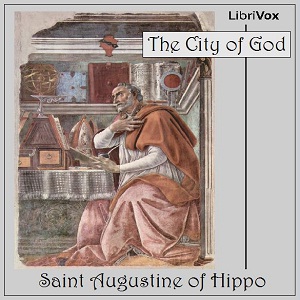
Rome having been stormed and sacked by the Goths under Alaric their king, the worshippers of false gods, or pagans, as we commonly call them, made an attempt to attribute this calamity to the Christian religion, and began to blaspheme the true God with even more than their wonted bitterness and acerbity. It was this which kindled my zeal for the house of God, and prompted me to undertake the defence of the city of God against the charges and misrepresentations of its assailants. This work was in my hands for several years, owing to the interruptions occasioned by many other affairs which had a prior claim on my attention, and which I could not defer.
However, this great undertaking was at last completed in twenty-two books. Of these, the first five refute those who fancy that the polytheistic worship is necessary in order to secure worldly prosperity, and that all these overwhelming calamities have befallen us in consequence of its prohibition. In the following five books I address myself to those who admit that such calamities have at all times attended, and will at all times attend, the human race, and that they constantly recur in forms more or less disastrous, varying only in the scenes, occasions, and persons on whom they light, but, while admitting this, maintain that the worship of the gods is advantageous for the life to come. In these ten books, then, I refute these two opinions, which are as groundless as they are antagonistic to the Christian religion.
But that no one might have occasion to say, that though I had refuted the tenets of other men, I had omitted to establish my own, I devote to this object the second part of this work, which comprises twelve books, although I have not scrupled, as occasion offered, either to advance my own opinions in the first ten books, or to demolish the arguments of my opponents in the last twelve. Of these twelve books, the first four contain an account of the origin of these two cities—the city of God, and the city of the world. The second four treat of their history or progress; the third and last four, of their deserved destinies. And so, though all these twenty-two books refer to both cities, yet I have named them after the better city, and called them The City of God. (Summary by the author in his Retractationes (ii. 43) as translated by Marcus Dods)
69 episodes
Probably the most needful characteristic of any Christian when following Christ is humility; Andrew Murray has an insight into this important subject unparalleled in writers of any age. Summary by Jack Hielema.
An English version is available / Een Engelse versie is beschikbaar. Humility : The Beauty of Holiness.
15 episodes
A collection of classic Christian hymns spanning the centuries. Some LibriVox volunteers read the hymns; others sung them. (Summary by Leon Mire)
39 episodes
In Books 3 and 4 of Leviathan, Thomas Hobbes elaborates on the political philosophy set forth in the first two books, by considering the nature of a Christian commonwealth. Book 3 begins with a wealth of biblical scholarship, directed at establishing the authority of Scripture while at the same time undermining modern claims to supernatural revelation that would subvert civil law. Hobbes concludes that we cannot be sure of anyone else's divine revelation, and that religious authority is therefore subordinate to civil power. Book 4, titled “Of the Kingdom of Darkness,” sets forth the various ways in which Scripture has been misinterpreted by the church, according to Hobbes, in mixing pagan elements with Christianity.
(Summary adapted from Wikipedia by Leon Mire)
24 episodes
Grace Abounding is the spiritual autobiography of John Bunyan, who also penned Pilgrim’s Progress, perhaps one of the most significant pieces of Christian literature, second only to the Bible. Grace Abounding follows Bunyan’s struggle to find true repentance and forgiveness, his battle with Satan’s temptations of unbelief, his comfort found in the Bible and his overarching victory gotten by the grace of God through Jesus Christ his Son. Readers familiar with Pilgrim’s Progress will recognize that many of the allegorical points in his famous work came out of Bunyan’s own struggles and discoveries, and it has been said that Bunyan could not have written Pilgrim’s Progress without first going through the battles chronicled in Grace Abounding. (Summary by Stephen Escalera)NOTE: Paragraphs 319-339 from "A Brief Account of the Author’s Imprisonment" are omitted from the e-text, and are therefore omitted from this recording.
10 episodes
In this exposition of the Ten Commandments, Martin Luther attempts to build a bridge between justification by faith and the life of the Christian manifested by good works. - Summary by Larry Wilson
34 episodes
"First Clement is one of the oldest Christian documents outside the New Testament canon. The epistle was written by Clement, one of the elders of the church of Rome, to the church in Corinth, where it was read for centuries. Indeed, historians generally hold First Clement to be an authentic document dating from the first century. From the fifth century to the eighth century, many of the eastern churches accepted the First Epistle of Clement as canonical scripture as it is clearly listed among the canonical books of the New Testament in "Canon 85" of the Canons of the Apostles. However, by the end of the eighth century, none of the ancient churches, eastern or western, included First Clement in any official listing of the canonical New Testament" (From Wikipedia, modified by Sam Stinson)
6 episodes
Polycarp's Letter to the Philippians (often simply called To the Philippians) composed around 110 to 140 AD is described by Irenaeus as follows: "There is also a forceful epistle written by Polycarp to the Philippians, from which those who wish to do so, and are anxious about their salvation, can learn the character of his faith, and the preaching of the truth." (J Stevenson, A new Eusebius [London: SPCK, 1965] p. 120) This is one quote from the epistle: "Stand fast, therefore, in this conduct and follow the example of the Lord, 'firm and unchangeable in faith, lovers of the brotherhood, loving each other, united in truth,' helping each other with the mildness of the Lord, despising no man." (Summary by Wikipedia)
1 episodes
Ignatius of Antioch penned these letters to churches (Ephesians, Magnesians, Trallians, Romans, Philadelphians, and Smyrnaeans) and Polycarp on his way to martyrdom. Ignatius was an apologist for the Episcopal style of church government (as opposed to sole rule by a council of presbyters) which developed in the late first or early second century. Eager to die in imitation of his Savior, it was Ignatius who wrote this to the Roman church: "I am God's wheat, and I am ground by the teeth of wild beasts that I may be found pure bread [of Christ]." (Summary by Sam Stinson)
7 episodes
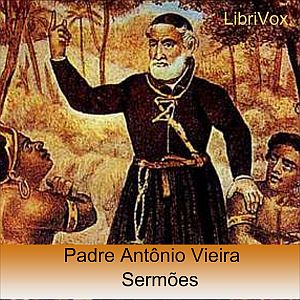
O Padre Antônio Vieira foi um religioso português – mas mais do que isso, foi um exímio escritor e elemento influente na política do século XIX. Tendo vivido parte da vida no Brasil e parte em Portugal, Vieira deixou uma obra complexa, em estilo barroco, na qual demonstra familiaridade com a literatura antiga (com influências marcantes de Cícero e Sêneca), com os escritos cristãos e com a filosofia de sua época. Apresentamos aqui uma recolha de alguns de seus sermões mais conhecidos.Padre Antônio Vieira was a Portuguese Jesuit – but more than a clergyman, he was a brilliant writer and an influential character in the politics of the 19th century. He spent part of his life in Brazil and part in Portugal, and left an abundant and complex oeuvre in baroque style. In both his sermons and private letters, he showed mastery of Ancient Literature (with marked influences of Cicero and Seneca), Christian writings and Philosophy. Here we present a collection of some of his most famous sermons.
(Summary by Leni)
12 episodes
The first volume of Lea’s monumental work on the Inquisition of Spain, covering its origin and establishment and its relations with the state. Also included are appendices listing Tribunals, Inquisitors-General, and Spanish coinage. (Summary by Ruth Golding)
58 episodes
Devotions upon Emergent Occasions is a 1624 prose work by the English writer John Donne. It is a series of reflections that were written as Donne recovered from a serious illness, believed to be either typhus or relapsing fever. (Donne does not clearly identify the disease in his text.) The work consists of twenty-three parts describing each stage of the sickness. Each part is further divided into a Meditation, an Expostulation, and a Prayer.The seventeenth meditation is perhaps the best-known part of the work. It contains the following passage:"No man is an island, entire of itself; every man is a piece of the continent, a part of the main. If a clod be washed away by the sea, Europe is the less, as well as if a promontory were, as well as if a manor of thy friend's or of thine own were: any man's death diminishes me, because I am involved in mankind, and therefore never send to know for whom the bell tolls; it tolls for thee." (Summary by Wikipedia)
24 episodes
The Prophet Joel, the Second Minor Prophet of the Old Testament, entire book is read. (Summary by Susan S.)
1 episodes
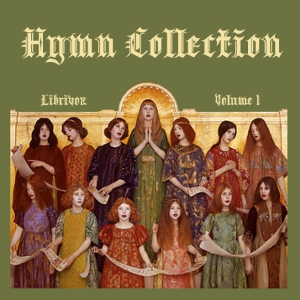
Librivox volunteers sing twenty of their favourite hymns.
All Glory Laud and Honor - Words translated from the Latin of Theodolph of Orleans; Tune: St. Theodulph by Melchior Teschner; harmony by William H. Monk.
Amazing Grace - Tune: New Britain by James P. Carrell and David S. Clayton, Harmony by Edwin Othello Excell.
Be Thou My Vision - Tune: Slane (Irish traditional).
Blessed Assurance - Tune: Assurance, by Phoebe Knapp.
Come Thou Fount of Every Blessing - Tune: Nettleton by John Wyeth.
Dear Lord and Father of Mankind - Music: Repton by Charles Parry.
For The Beauty of the Earth - Tune: Dix by Conrad Kocher.
His Eye is on the Sparrow - Tune: His Eye is on the Sparrow by Charles Hutchinson Gabriel.
I Am a Poor Wayfaring Stranger - Tune first found in Kentucky Harmony by Ananias Davisson.
I Sing the Almighty Power of God - Tune: Forest Green (Trad. English), arr. by Ralph Vaughan Williams.
I Surrender All - Tune: I surrender all by Winfield Scott Weeden.
It is Well with My Soul - Tune: Ville du Havre by Philip Paul Bliss.
Just As I Am - Tune: Woodworth by William B. Bradbury.
My Jesus I Love Thee - Tune: Gordon by Adoniram J. Gordon.
Rock of Ages - Tune: Toplady by Thomas Hastings.
Softly and Tenderly - Words and Music by Will Thompson.
Tis So Sweet to Trust in Jesus - Tune: Tis So Sweet to Trust in Jesus by William James Kirkpatrick.
Trust and Obey - Tune: Trust and Obey, by Daniel B. Towner.
We Gather Together - Arrangement and Latin translation: Eduard Kremser; English translation: Theodore Baker.
20 episodes
St. Irenaeus, Bishop of Lyons, describes several schools of Gnosticism which were prevalent among pre-Nicene Christianity. He then refutes these beliefs as heresies by contrasting them with what he describes as catholic, orthodox Christianity. Against Heresies demonstrates that earliest Christianity was a fascinating and diverse plethora of beliefs, debates, and schisms. (Summary by JoeD)
64 episodes
The Heidelberg Catechism is a Protestant confessional document taking the form of a series of questions and answers, for use in teaching Reformed Christian doctrine. It has been translated into many languages and is regarded as one of the most influential of the Reformed catechisms.
The Heidelberg Catechism is one of the three Reformed confessions that form the doctrinal basis of the original Reformed church in The Netherlands, and is recognized as such also by the Dutch Reformed churches that originated from that church during and since the 19th century.
The Catechism is divided into fifty-two sections, called "Lord's Days," which were designed to be taught on each of the 52 Sundays of the year. In its current form, the Heidelberg Catechism consists of 129 questions and answers.
(Summary from Wikipedia)
3 episodes
The title page gives this book the subtitle, “True stories of the intrepid bravery and stirring adventures of missionaries with uncivilized man, wild beasts, and the forces of nature in all parts of the world.” The thrilling accounts in this collection include stories of Jacob Chamberlain’s medical ministry in India, the dangers faced by Alexander Mackay in Uganda, James Chalmers’ work among the headhunters of New Guinea, John Paton’s mission to the South Sea cannibals, and the Hawaiian queen Kapiolani’s challenge to the gods of the volcano. “Romantic” in the sense that these brave missionaries faced the unknown, but never “romanticized” – all sacrificed home and luxury, and many suffered the loss of family, fortune, and even their lives. (Summary by D. Leeson)
24 episodes
Librivox volunteers from around the world bring you Christmas stories, carols and poems in English, German, Hungarian, Latin, Portuguese, Russian and Spanish.A merry Christmas to you all!
22 episodes
A defense of the Christian faith delivered by St. Justin Martyr to the Roman Senate in the second century AD (Summary by IWYLLPA)
2 episodes

One great universal law runs through the realm of nature. Our Saviour gave it in a sentence: 'First the blade, then the ear, after that the full corn in the ear.' It is with the desire to show that the same law rules in another of God's creations—The Bible—that this little volume has been prepared. The Bible has as literally 'grown' as has an oak tree; and probably there is no more likeness between the Bible as we know it to-day and its earliest beginning, than we find between the mighty tree, and the acorn from which it sprang. The subject is so vast that we have not attempted anything beyond the briefest outline. Our purpose has been merely to give some idea of the origin of the Bible books, up to the measure of our present light upon the subject, and also to show the purpose for which they were written. But if our readers, by seeing something of the wonder and glory of the Holy Scriptures, are able to catch a glimpse of the Creator's mind behind the whole, our work will not have been in vain. (Foreword, by Mildred Duff)
13 episodes

Institutes of the Christian Religion is John Calvin's seminal work on Protestant systematic theology. Highly influential in the Western world and still widely read by theological students today, it was published in Latin in 1536 and in his native French in 1541, with the definitive editions appearing in 1559 (Latin) and in 1560 (French).The book was written as an introductory textbook on the Protestant faith for those with some learning already and covered a broad range of theological topics from the doctrines of church and sacraments to justification by faith alone and Christian liberty, and it vigorously attacked the teachings of those Calvin considered unorthodox, particularly Roman Catholicism to which Calvin says he had been "strongly devoted" before his conversion to Protestantism. The over-arching theme of the book – and Calvin's greatest theological legacy – is the idea of God's total sovereignty, particularly in salvation and election.The Institutes are a primary reference for the system of doctrine adopted by the Reformed churches, usually called Calvinism. Book Three of the Institutes, "which contains a full exposition of the Third Part of the Apostles’ Creed, treats of the mode of procuring the grace of Christ, the benefits which we derive and the effects which follow from it, or of the operations of the Holy Spirit in regard to our salvation." (Summary from Wikipedia & Book 3 Argument)
47 episodes
El Camino de Perfección (trans.: The Way of Perfection) is a method for making progress in the contemplative life written by St. Teresa of Ávila for the sisters of her reformed convent of the Carmelite Order (Discalced). St. Teresa was a major figure of the Catholic Reformation in 16th Century Spain. (Introduction by Wikipedia)
43 episodes

John Donne was an English Jacobean preacher, sometime lawyer, later in life a Member of Parliament and Royal Chaplain. Marrying for love against the wishes of his influential father-in-law; Donne's career was cast into shadow: forcing him to support his wife, Anne, as best he might under a specter of unforgiving penury. Despite such hardships - perhaps because of them - Donne's writings demonstrate a mastery of poetry layered with metaphysical meaning and mystery: which continues to delight and challenge modern-day readers. Donne's "divine poems" - the focus of this collection - present profound theological insights using absorbing allegories and beautiful imagery. At the end of Donne's life - as his health deteriorated under illnesses of increasing severity - his poetry served him as: distraction, consolation, and even "public confession". With them, Donne cheerfully but soberly faces the limits of his own mortality: and contemplates the mysteries that lie beyond the grave. (Introduction by Godsend)
5 episodes
A religious autobiography of unsurpassed interest, the simple confidential tone of which "revolutionized the popular estimate of its author," establishing the strength and sincerity of the convictions which had led him into the Roman Catholic Church(Wikipedia)."No autobiography in the English language has been more read; to the nineteenth century it bears a relation not less characteristic than Boswell's 'Johnson' to the eighteenth." Rev. Wm. Barry, D.D.
25 episodes
This multilingual Christmas Short Works Collection for 2010 contains public domain short stories, essays, poems and scripture passages recorded by a variety of LibriVox members in English, German and Portuguese.
27 episodes
LibriVox volunteers get into the festive spirit to bring you this year's selection of carols and Christmas music - both sacred and secular.
16 episodes

Institutes of the Christian Religion is John Calvin's seminal work on Protestant systematic theology. Highly influential in the Western world and still widely read by theological students today, it was published in Latin in 1536 and in his native French in 1541, with the definitive editions appearing in 1559 (Latin) and in 1560 (French).
The book was written as an introductory textbook on the Protestant faith for those with some learning already and covered a broad range of theological topics from the doctrines of church and sacraments to justification by faith alone and Christian liberty, and it vigorously attacked the teachings of those Calvin considered unorthodox, particularly Roman Catholicism to which Calvin says he had been "strongly devoted" before his conversion to Protestantism. The over-arching theme of the book – and Calvin's greatest theological legacy – is the idea of God's total sovereignty, particularly in salvation and election.
The Institutes are a primary reference for the system of doctrine adopted by the Reformed churches, usually called Calvinism.
Book Four of the Institutes discusses "the Church and the Communion of Saints, or of the external means or helps by which God invites us to fellowship with Christ, and keeps us in it." This includes Church government, with scathing denunciations of the Papacy and Catholic Church. (Summary from Wikipedia & TriciaG)
46 episodes
De Imitatione Christi (De navolging van Christus) is een middeleeuws boek dat handelt over hoe je een goed christen wordt. Het werd in de vijftiende eeuw geschreven door de Nederlandse augustijn Thomas a Kempis. Dit werk was na de Bijbel het meest verspreide boek van de late Middeleeuwen en wordt ook nu nog door veel christenen gelezen. (bron: Wikipedia, kattekliek)
16 episodes
Mr. Brooks, in this compilation, has endeavored to select those incidents and practical remarks from Mr. Müller's Narratives, that show in an unmistakeable way, both to believers and unbelievers, the secret of believing prayer, the manifest hand of a living God, and His unfailing response, in His own time and way, to every petition which is according to His will. (From the Preface)
8 episodes

Saint Catherine of Genoa (Caterina Fieschi Adorno, born Genoa 1447 – 15 September 1510) is an Italian Roman Catholic saint and mystic, admired for her work among the sick and the poor. She was a member of the noble Fieschi family, and spent most of her life and her means serving the sick, especially during the plague which ravaged Genoa in 1497 and 1501. She died in that city in 1510.
In 1551, 41 years after her death, a book about her life and teaching was published, entitled Libro de la vita mirabile et dottrina santa de la Beata Caterinetta de Genoa. This is the source of her "Dialogues on the Soul and the Body" and her "Treatise on Purgatory", which are often printed separately. Her authorship of these has been denied, and it used to be thought that another mystic, the Augustinian canoness Battistina Vernazza, who lived in a monastery in Genoa from 1510 till her death in 1587 had edited the two works, a suggestion discredited by recent scholarship, which attributes a large part of both works to St Catherine, though they received their final literary form only after her death.
In the Treatise on Purgatory, St. Catherine wrote about the purpose of Purgatory, the unspeakable pain endured by the souls in Purgatory, and the great hope that souls have while in Purgatory, of seeing and spending eternity with God in Heaven. (Introduction by Wikipedia and Ann Boulais)
3 episodes
The Augsburg Confession is the first and most fundamental Confession of the Lutheran Church. It was composed for a public reading at the Diet of Augsburg on June 25, 1530. Although written by Melanchthon, it was presented as the official answer of the undersigned German princes to the summons of Emperor Charles V. Two copies were presented on the same day, one in German, the other in Latin. This work translates a conflation of the German and Latin texts and was prepared for the Concordia Triglotta of 1921. (Introduction by Jonathan Lange)
4 episodes
When Rev. T. DeWitt Talmage went to visit the Holy Land, he wrote sermons for his home church and sent them back to be read. It resulted in this wonderful collection of sermons exploring in depth the places he visited, explaining their significance both in the past and present, describing what he saw and how he felt. As well as what happened there in biblical times, all the while expanding on that and teaching valuable lessons about Christ and how he is just as real today as he was when he walked the Earth in physical form. His sermons are always very informative and and full of help for your Christian walk. This book is an excellent sketch or the Holy Land as well as a thought provoking set of sermons, which will have you thinking about your own personal relationship with Christ. (Summary by fiddlesticks)
25 episodes
G.K. Chesterton and James Walsh join Hilaire Belloc in an energetic rollout of the means by which history becomes propaganda, to the damage, not only to truth, but to the human soul. (Summary by Jan Baker)
4 episodes
The Apology of the Augsburg Confession was written by Philip Melanchthon during and after the 1530 Diet of Augsburg as a response to the Pontifical Confutation of the Augsburg Confession, Charles V's commissioned official Roman Catholic response to the Lutheran Augsburg Confession of June 25, 1530. It was intended to be a defense of the Augsburg Confession and a refutation of the Confutation. It was signed as a confession of faith by leading Lutheran magnates and clergy at the meeting of the Smalcald League in February, 1537, and subsequently included in the German [1580] and Latin [1584] Book of Concord. As the longest document in the Book of Concord, it offers the most detailed Lutheran response to the Roman Catholicism of that day as well as an extensive Lutheran exposition of the doctrine of Justification. (By Wikipedia)
Proof-listened by both Jeanie & Dawn Larsen
18 episodes
LibriVox volunteers bring you this year's selection of 25 sacred and secular carols and Christmas songs, in English, German and Latin.
25 episodes
This year's Christmas feast of short stories, essays and poetry is mostly English cuisine, with a little dash of French and Middle English seasoning. Here you will find many old favourites, and some festive treats which may be new to you.
29 episodes
A catechism is a summary of the principles of Christian religion and articles of the faith. The Baltimore Catechism specifically was the de facto standard Catholic school text in the United States from 1885 to the late 1960s. It was the first such catechism written for Catholics in North America, replacing a translation of Bellarmine's Small Catechism. The Baltimore Catechism remained in use in nearly all Catholic schools until many moved away from catechism-based education, though it is still used up to this day in some. (Summary by Wikipedia [annotated by mknightretke])
9 episodes
The Summa Theologica (or the Summa Theologiae or simply the Summa, written 1265–1274) is the most famous work of Thomas Aquinas (c. 1225–1274) although it was never finished. It was intended as a manual for beginners and a compilation of all of the main theological teachings of that time. It summarizes the reasoning for almost all points of Christian theology in the West, which, before the Protestant Reformation, subsisted solely in the Roman Catholic Church. The Summa's topics follow a cycle: the existence of God, God's creation, Man, Man's purpose, Christ, the Sacraments, and back to God. (Summary adapted from the Wikipedia)This is part five of six parts of the Pars Prima, consisting of the Treatise on Man.
33 episodes
A book that examines the sign of the Cross made by Christians since the primitive church up until the 19th century. It looks at stories of miracles and the writings of the father to impress upon the reader the need to make the sign of the cross reverently and frequently. (Summary by dom. Noah Moerbeek CPMO)
23 episodes
On the Bondage of the Will (Latin: 'De Servo Arbitrio', literally, "On Un-free Will", or "Concerning Bound Choice"), by Martin Luther, was published in December 1525. It was his reply to Desiderius Erasmus's De libero arbitrio diatribe sive collatio or On Free Will, which had appeared in September 1524 as Erasmus's first public attack on Luther, after being wary about the methods of the reformer for many years. At issue was whether human beings, after the Fall of Man, are free to choose good or evil. The debate between Luther and Erasmus is one of the earliest of the Reformation over the issue of free will and predestination. (Summary by Wikipedia)
15 episodes

